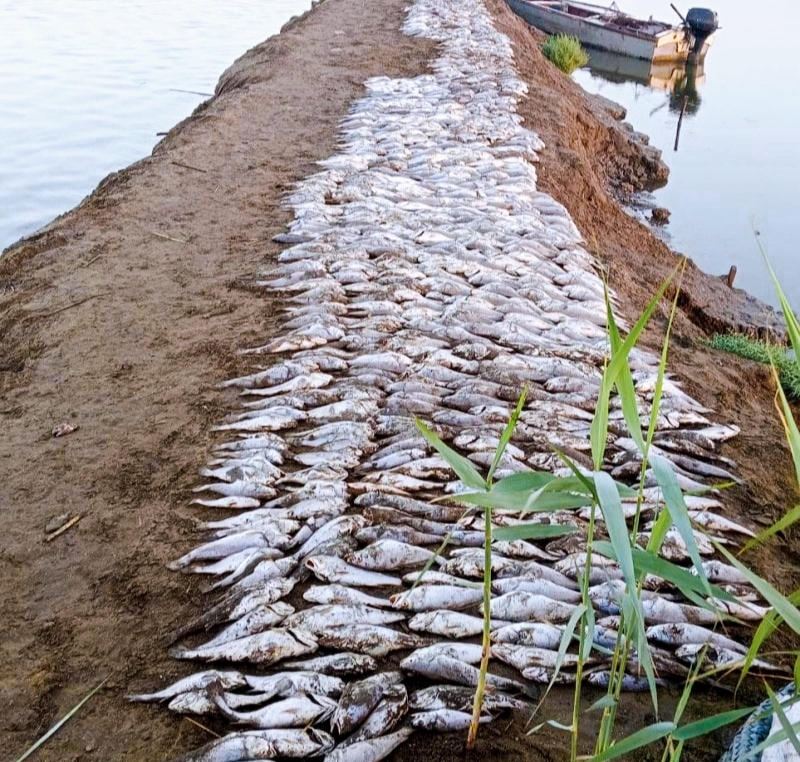Lake Manzala, one of the most important and largest lakes in Egypt and a major source of fish wealth, has witnessed a sudden environmental disaster represented by the mass death of huge numbers of fish, which has raised widespread concern among fishermen and fish farm owners in the area.
Social media users have circulated shocking photos and videos in recent hours, showing tens of tons of dead fish floating on the water's surface and scattered along the shores of the lake, amid a state of shock and sadness among those working in the sector.
* The Deadly Heat... and the Cause of the Mass Deaths
Dr. Mohamed El-Qarsh, Assistant Minister of Agriculture and the official spokesperson for the ministry, stated in special remarks that what happened is a seasonal phenomenon that recurs annually with rising temperatures.
He confirmed that high temperatures cause a decrease in the dissolved oxygen levels in the water, which leads to stress in the fish and increases the likelihood of their deaths.
He added that heat waves also lead to an increase in ammonia concentration in the water, exacerbating pollution and causing significant environmental changes that fish cannot adapt to.
* Urgent Action from the Ministry of Agriculture
Dr. El-Qarsh indicated that Dr. Alaa Farouk, the Minister of Agriculture, has been following the crisis since its inception and has directed to intensify communication with fish farm owners in the area and provide them with the necessary technical support to protect what remains of the fish wealth and reduce losses.
* Climate Change... An Escalating Danger
For his part, Dr. Ahmed Sany, head of the Central Administration for Production and Operation at the Lakes Protection and Fish Wealth Development Authority, considered that fish deaths have become a natural phenomenon in light of the severe climate changes the world is experiencing.
Dr. Sany explained that fish are considered cold-blooded organisms, and thus they are directly affected by changes in water temperatures.
He stated that the marine species farmed in Egypt, such as sea bass, grouper, and mullet, live within a temperature range of 20 to 24 degrees Celsius, and any deviation from this range leads to a decline in growth rates and a weakened ability to resist diseases.
He confirmed that the recent heat wave has caused changes in the water patterns and its chemical and physical specifications, which increased stress on the fish, especially in fish farms where fish density is very high compared to natural environments, making them more susceptible to rapid effects.
* Unprecedented Heat Wave Hits Egypt and the Region
Egypt is currently experiencing, like several Arab countries, a severe and unprecedented heat wave, expected to peak in the next two days, amid warnings of its effects on humans, animals, and the ecosystem as a whole, at a time when concerns are growing about the recurrence of such environmental disasters in the future.

